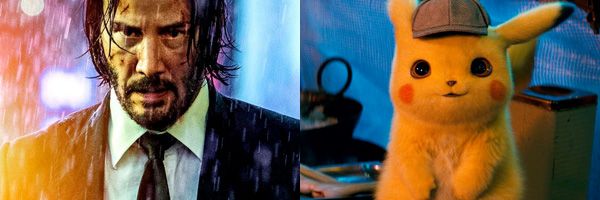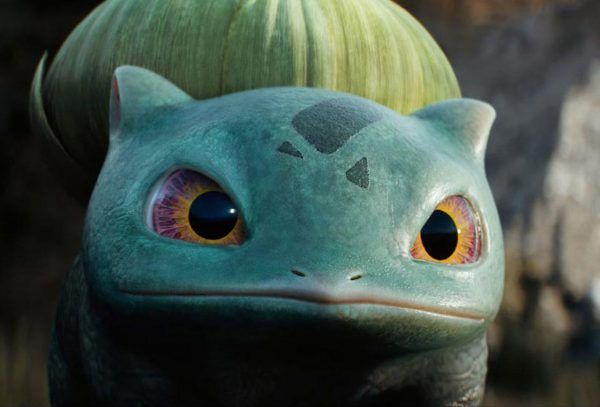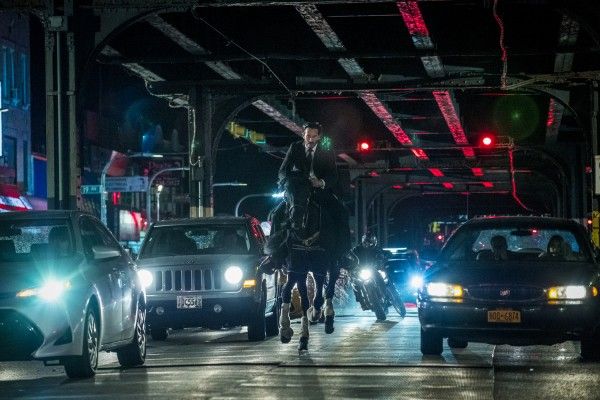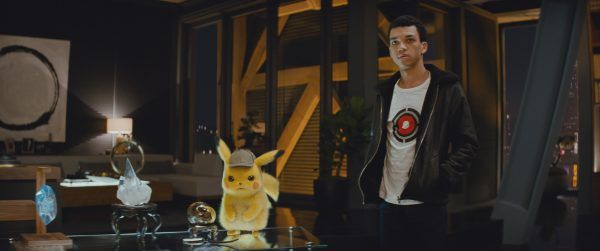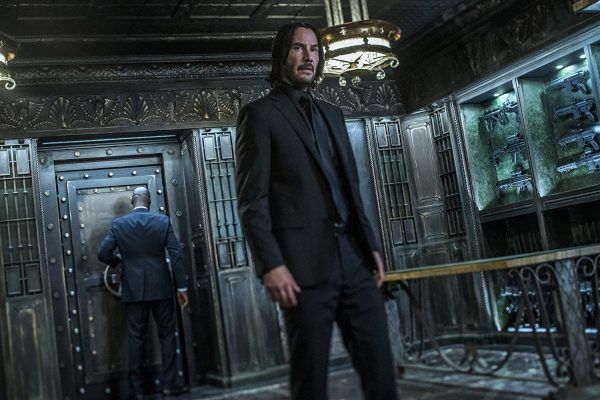Spoilers ahead for Detective Pikachu and John Wick 3.
In the past two weeks, I’ve seen Pokemon: Detective Pikachu and John Wick: Chapter 3 - Parabellum, and they had a remarkable similarity. Although Detective Pikachu is targeted at children and Pokemon fans while John Wick 3 is aimed at bloodthirsty adults, both movies suffer from a similar affliction. Both movies are about the Cinema of Recognition. Both movies choose to minimize story and character because they’ve made a kind of cynical calculation that what you’ve really shown up for is to recognize something. When you buy your ticket, you’re not looking for a compelling narrative or endearing characters as much as you’re looking for what’s on the box. If it’s Detective Pikachu, it’s Pokemon. If it’s John Wick, it’s highly-choreographed action. Both of these movies are ostensibly narrative features, but neither one is too concerned with narrative.
In the case of Detective Pikachu, the film is arguably overloaded with plot even though that plotting doesn’t really take you on much of a journey. The story revolves around Tim (Justice Smith), who is estranged from his father, who is presumed dead after a car accident. Tim then teams up with his father’s pokemon, a Pikachu (voiced by Ryan Reynolds), that only Tim can understand. This leads them to try and solve a mystery where Bill Nighy’s secretly evil CEO wants to transform people into Pokemon because Pokemon can evolve, I think? It’s never totally clear, and the narrative payoffs lack a punch because the story is so muddled and convoluted.
But that doesn’t really matter because the purpose of Detective Pikachu isn’t to tell you a memorable story or root for the characters. It’s that you notice Bulbasaur or Charizard or Ditto or any number of characters from the Pokemon games. Detective Pikachu is primarily a movie for Pokemon fans, not by giving them a memorable story that incorporates elements from the Pokemon games, but simply by recognizing Pokemon. Those Pokemon are loosely woven into the fabric of the story, but not in a way that would be particularly interesting for those who aren’t already fans of Pokemon. It’s fine to put the fans first, but those fans still deserve a narrative that makes sense and does more than simply throwing up characters who will give you a brief, giddy thrill of seeing them in highly-rendered CGI.
In John Wick 3, John Wick’s arc is that he goes from excommunicado, flees to Morocco to see The Elder (Saïd Taghmaoui), who lives in the middle of the desert like a Bedouin and can overrule the High Table that excommunicated John Wick (Keanu Reeves). The Elder lets Wick back in if he agrees to cut off a finger and kill his old friend Winston (Ian McShane), but when Wick, now with only nine digits, confronts Winston, he gets talked out of it by Winston and turns his back on the High Table again. The film’s provides Wick’s motive as he wants to live so that someone will remember his wife (who I guess died without any friends or family?). But then Winston says, “But you’ll be a slave to the High Table until you die! Would your wife have wanted that?” And Wick is like, “I hadn’t really thought about that!” and proceeds to kill more High Table goons until the movie ends with Winston betraying Wick and Wick telling the Bowery King (Laurence Fishburne) that now he’s pissed off.
That’s a pretty weak character arc for Wick. Although other character harp on about consequences and rules, none of that seems to really affect Wick or the people around him. The point of the movie is to put John Wick in situations where people come to kill him, and he absolutely destroys them. And yes, it may sound silly to say, “I bought a ticket to John Wick for the rich storytelling,” but at some point, storytelling supports action. Late in the film, there’s a scene where Wick has a two-on-one fight with two henchmen who are big fans of his, and it’s well choreographed, but it’s meaningless. Wick can’t lose, the henchmen don’t have character arcs of their own, so their lives are irrelevant, and the set piece is just on this island that doesn’t move the plot forward or change the characters. It’s action for the sake of action, and for some people, that’s enough.
But I would argue that moviegoers deserve better than this cynical bargain. It’s fine to be in the mood for a family film or an action film, but if those movies are supposed to be stories filled with character who go on journeys, then you should get that as well. That shouldn’t be a nice bonus but the foundation for everything else. That’s not simply a quaint or outdated notion. When you don’t have that foundation, everything else lacks weight. If I don’t care about Pokemon, then the story and the characters need to make me care about Pokemon. It can’t be enough to say, “Oh, neat. Greninja is here.” The same goes for John Wick. At some point, the action loses its immediacy because the plot can’t support what’s happening. Well-choreographed action works to a point, but there needs to be investment in larger stakes.
Two movies do not make a trend, and I’m aware that John Wick 3 and Detective Pikachu are not the first movies to put their brand ahead of storytelling. But we should call out movies like this because even when they do deliver on their brand, it shouldn’t be at the expense of storytelling and character. It’s not enough to simply recognize the thing that was on the poster. That may be a good way to sell a movie and that may be the defining feature, but it can’t be the totality.

